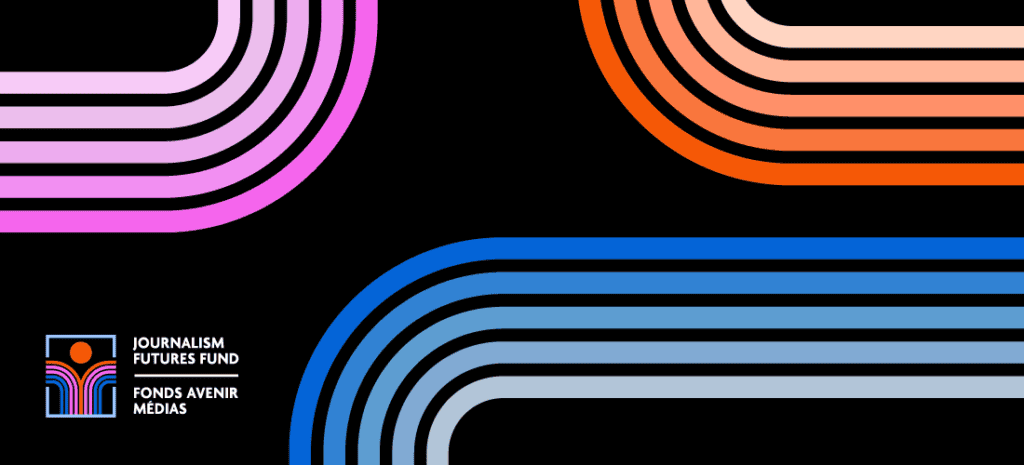
Journalism Futures Fund
The Journalism Futures Fund is a pooled fund that supports independent journalism to strengthen civic life and democracy in Canada.
Background
The Journalism Futures Fund was created by philanthropic foundations and individual donors to strengthen independent journalism in Canada.
The inaugural round of the Fund will support small-to-medium organizations that produce impactful journalism, engage their audiences, are led by members of communities that are underserved in Canadian media, and have a strong vision for their future.
Successful applicants will receive multi-year funding paired with capacity-strengthening support to increase their operational and financial resilience and deepen their audience engagement.
The Inspirit Foundation will incubate and steward the Fund in its pilot phase, with the guidance of an advisory group of individuals from the philanthropic and journalism sectors. The funders and advisory group do not have any input into funding decisions.
Applications are NOW CLOSED. Check back in February 2026 for announcements and subscribe to the JFF newsletter to stay in the loop.
The Fund supports independent media organizations that produce impactful journalism, engage their audiences, have a strong vision for their future, and are led by members of communities that are underserved in media.
Fund Model
The Journalism Futures Fund will offer three types of support.
Learn more about the FundProject-Based Funding
Funding for projects led by one or more organizations. Details to come in 2026.
Capacity-Strengthening
Opportunities to strengthen operational resilience, audience engagement, impact and more.
FAQ: About the Fund
For questions and support, please contact jff-fam@inspiritfoundation.org.
The Journalism Futures Fund was created by a group of philanthropic foundations and individual donors in Canada, including The Euphrosine Foundation, Inspirit Foundation, McConnell Foundation and The Sonor Foundation. In its pilot phase (2025–2029), the Journalism Futures Fund will be incubated at the Inspirit Foundation, who will administer the Fund with the guidance of an advisory group (see below) of individuals from the philanthropic and journalism sectors. The funders and the advisory group are not involved in funding decisions.
Funding decisions will be made by an independent jury composed of individuals drawn from the Canadian journalism sector. The individuals and philanthropic foundations that have contributed to the Fund are not involved in funding decisions.
The Journalism Futures Fund currently has two streams: an Organizational Funding stream opening in fall 2025 and a Project-Based Funding stream to be announced in 2026.
The inaugural round of the Journalism Futures Fund is focused on the Organizational Funding stream. This stream is open to independent journalism organizations that are a registered business or are incorporated as a for-profit or non-profit in Canada, produce original journalism in English or French and adhere to journalistic ethics guidelines. You can take the eligibility quiz for this stream here.
More information about the Project-Based Funding stream will be shared in 2026.
The Organizational Funding stream of the Fund prioritizes applicants that have between one and ten team members (employees or freelancers) and an annual budget of less than $1,000,000 CAD.
We define “underserved” communities as those that are frequently underrepresented, misrepresented or overlooked in media — and that receive disproportionately low levels of funding and support as journalists or media outlets, especially in relation to their population size. This includes but is not limited to: Black and other racialized communities; Indigenous Peoples (First Nations, Inuit and Métis); newcomers, migrant workers, refugees and asylum-seekers; low-income communities; 2SLGBTQIA+ people; people with disabilities; and those located in Northern, rural or remote areas.
The Journalism Futures Fund will not endorse, influence, edit or vet content produced by grantees in advance of or following publication.
Funding recipients are required to adhere to established journalistic ethics guidelines.
In alignment with best practices for media funding, successful applicants will be publicly disclosed by the Fund and be required to disclose the support received.
The Journalism Futures Fund was seeded with an initial contribution of $3.15M from four foundations and other donors.
Founding Partners

We welcome new donors. By joining this first-of-its-kind fund in Canada, funders can maximize their impact, contribute to a strong and equitable media funding space and learn from peers here and abroad. For more information, email jff-fam@inspiritfoundation.org.
Advisory Committee
Asmaa Malik
Asmaa Malik is professor of journalism at Toronto Metropolitan University. Her research and teaching interests focus on equity and innovation in journalism and collaborative approaches to graduate supervision.
She is the co-recipient of Google News Initiative funding to develop an AI-powered tool that assesses news sourcing and is working on a SSHRC-funded project to study the experiences of Muslim journalists in Canadian newsrooms. She has held several editorial leadership roles at the Montreal Gazette and Toronto Star and her work has also appeared in The Washington Post, The Walrus and The Conversation.
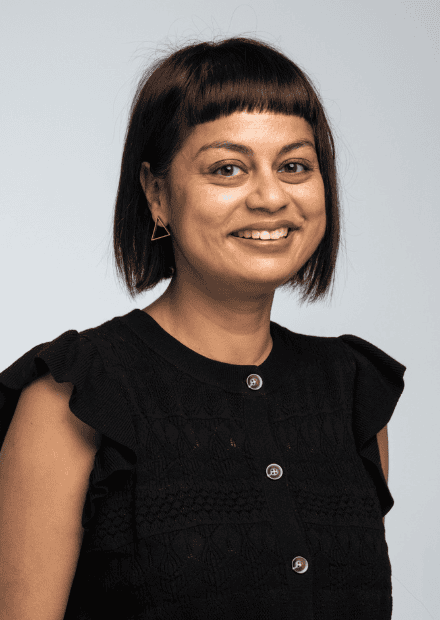
Fabrice Vil
Fabrice Vil regularly speaks out on a variety of social and philosophical issues, notably as an author, columnist for La Presse, lecturer, and workshop facilitator.
He occasionally collaborates with Radio-Canada and has lent his voice to Ados et armés and Briser le code, two documentaries exploring the issues of gun violence and racial and intercultural issues in Quebec. After contributing to three collective publications on education, racism, and identity issues within Generation Z, Fabrice wrote his first book, Bon gason! Konpliman! Egare!, which explores topics such as the quest for success and self-discovery. Fabrice is a certified integral development coach, a lawyer by training, and a former basketball coach.
In 2011, he founded Pour 3 Points, an organization that transforms sports coaches to help them play the role of life coaches for young athletes in disadvantaged communities. It is in this capacity that he has developed his knowledge of philanthropy, the social sector, and organizational governance.

Francine Compton
Francine Compton (Anishinaabe, Sandy Bay Ojibway First Nation) is a journalist with over 25 years experience and is currently the associate director of the Indigenous Journalists Association (IJA), (formerly the Native American Journalists Association). Her work focuses on upholding Indigenous journalism standards and practices internationally while communicating IJA’s mission to the public.
Francine worked at the Canadian Broadcasting Corporation (CBC) as an assignment producer in the CBC’s Indigenous Unit before joining the IJA staff. She spent over 20 years of her career working for the Aboriginal Peoples Television Network (APTN) and was the executive producer of APTN News when she left to join the CBC.
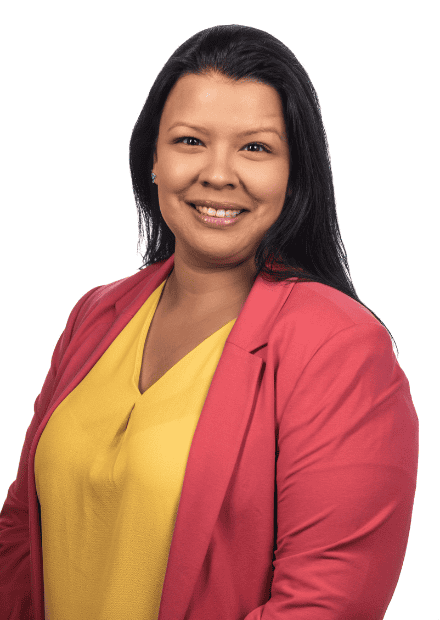
Kaila Jefferd-Moore
Kaila Jefferd-Moore is a Haida and Canadian journalist, radio/podcast enthusiast, and media consultant living in Somba K’e within Denendeh and Treaty 11 Territory. Kaila grew up in Inuuvik and graduated with a Bachelor of Journalism (Honours) from the University of King’s College. It was here she began freelance reporting and worked as Editor-in-Chief for The Dalhousie Gazette. Stints and bylines include local and national outlets such as Inuvik Drum (NNSL), CBC North, Maisonneuve, The Coast, THIS Magazine, Up Here, IndigiNews and more.
She is the Project Director and co-catalyzer of the Northern Journalism Training Initiative, which provides media skills training opportunities in the North.
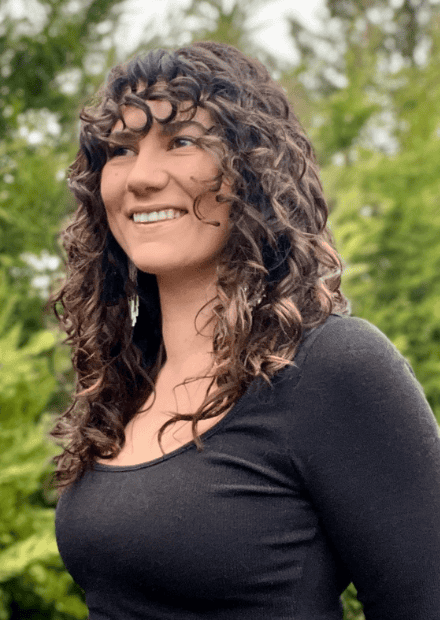
Mary-Lynn Young
Professor Young is a certified coach, educator, researcher and co-founder of The Conversation Canada, a national not-for-profit journalism outlet. She is a student of the curriculum of life, committed to actions that support future generations. Her professional life includes experience as a journalist in Canada and the United States, and administrator (Director, Associate Dean), professor and leadership coach at the University of British Columbia.
She has co-authored two books, including Reckoning: Journalism’s Limits and Possibilities (Oxford University Press, 2020) with Professor Candis Callison. Their book is on the recommended journalism reading list curated by the Reuters Institute for the Study of Journalism at Oxford University. She is completing a co-led seven-year $2.5-million competitive research grant on journalism innovation in 2026. The grant provides research funding for The Conversation Canada, and supports a wide range of projects led by scholars in three countries that examine explanatory journalism and its relationship to policy, Indigenous journalism, audiences, technology and the business of media.
She is married with one daughter.
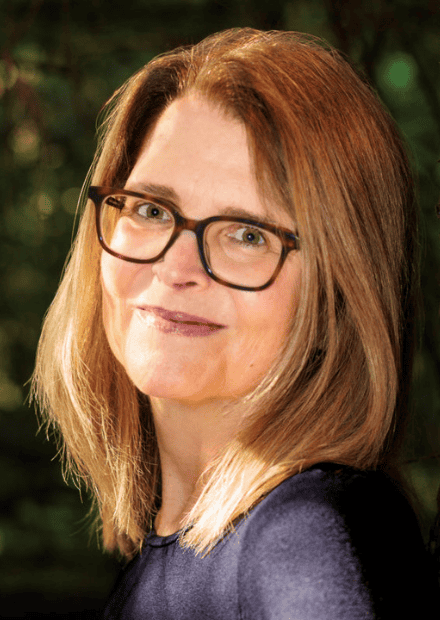
Narinder Dhami
Narinder has been recognized as one of Canada’s Top 40 Under 40 and a BMW Foundation Responsible Leader. Her work spans sectors and silos, bringing depth and rigour to drive social impact across North America and the Global South. She is the President of the Sonor Foundation and Founder of New Power Lab. Narinder has built, designed, and scaled social ventures globally.
In partnership with the Boston Consulting Group (BCG), she designed and led LEAP | Pecaut Centre for Social Impact, a venture philanthropy fund. With the University of Toronto and CAMH, she was the founding Executive Director and architect of Rise, a microfund for entrepreneurs with mental health and addiction challenges.
She also built a boutique impact investing fund with a gender and equity lens. Narinder has worked in microfinance and impact investing across West Africa, and lectures at Ryerson and the University of Toronto. She serves on multiple boards and advises several ventures.
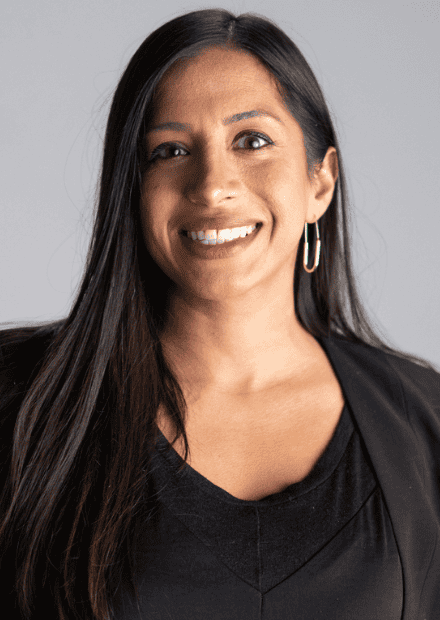
Niamh Leonard
Niamh Leonard is a lawyer and leads the Euphrosine Foundation, a time-bound philanthropic foundation working to strengthen and expand the spaces—legal, digital, and cultural—where democratic deliberation happens and those in power are held to account.
Her career spans law, governance, and philanthropy, with roles at the McConnell Foundation, Apathy is Boring, Transparency International Canada, Trudel Johnston & Lespérance, and the Constitutional Court of South Africa. In recognition of her commitment to equality, she was awarded the Rosalie Silberman Abella Prize by the Royal Society of Canada.
Niamh is drawn to questions of public governance, collective decision-making, and how diverse societies govern themselves across difference. She believes in a world where everyone has a meaningful say in the conditions in which they live—and the freedom to lead joyful lives.
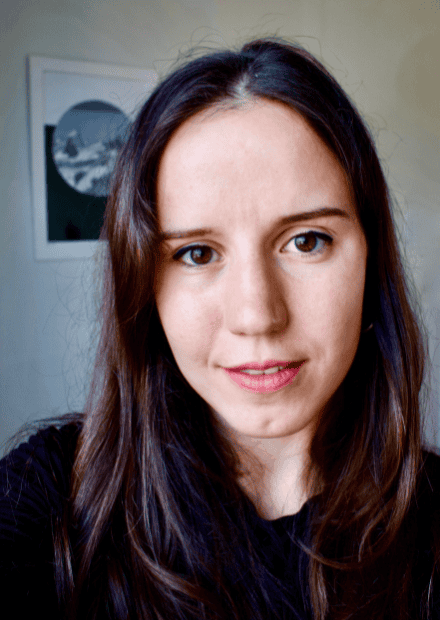
Sadia Zaman
Sadia Zaman brings a wealth of media, arts, and not-for-profit experience to her role as CEO, Inspirit Foundation. Under her leadership, the Foundation has cemented its reputation as a bold and catalytic organization in carrying out its mission of racial, social and economic justice.
Prior to joining the Foundation, Sadia held senior leadership roles at the Royal Ontario Museum, CBC, and Women in Film and Television-Toronto. Sadia began her career as a journalist, creating hundreds of hours of original, critically acclaimed content. She has won dozens of awards for her journalism and has been honoured for her leadership.
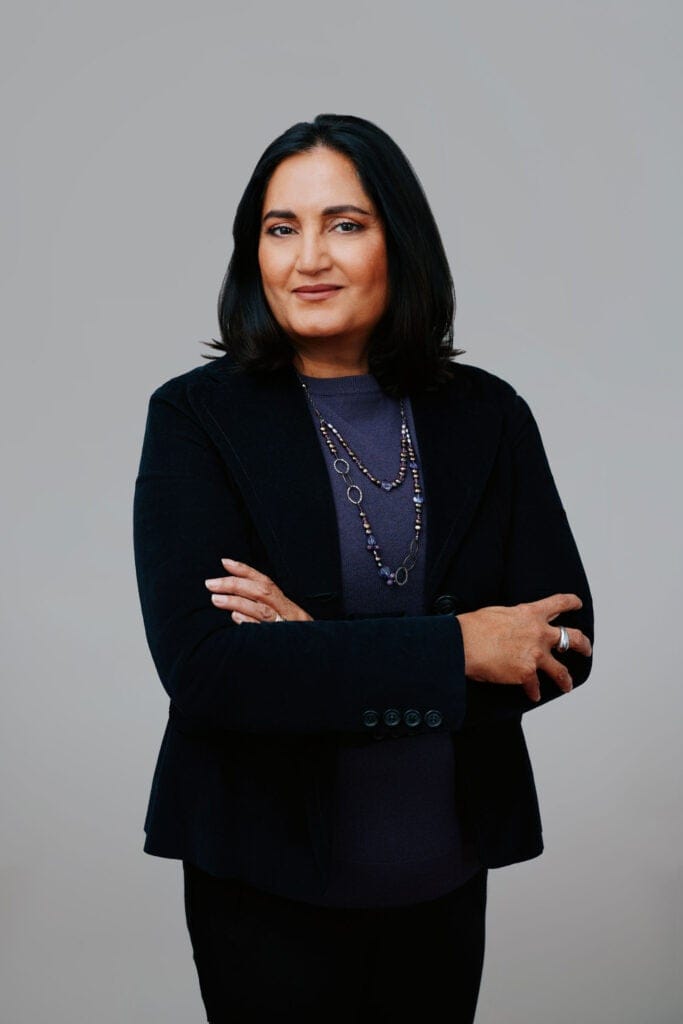
Tamer Ibrahim
Tamer Ibrahim is Program Manager, Projects and Partnerships at the McConnell Foundation. For the past 12 years, he’s worked in philanthropy, using capital as a tool for positive change, especially for equity-deserving communities. That focus has guided his work at the Laidlaw Foundation, Definity Foundation, and Foundation for Black Communities.
Tamer’s also been an advisor to several funding programs, including Tamarack Institute’s Community Climate Transitions program, the MLSE Foundation’s Community Action Grant, and the Northern Manitoba Food, Culture and Community Collaborative. He was also part of the steering committee for Imagine Canada’s Funding Reform Working Group, helping push for more equitable funding practices across the sector.
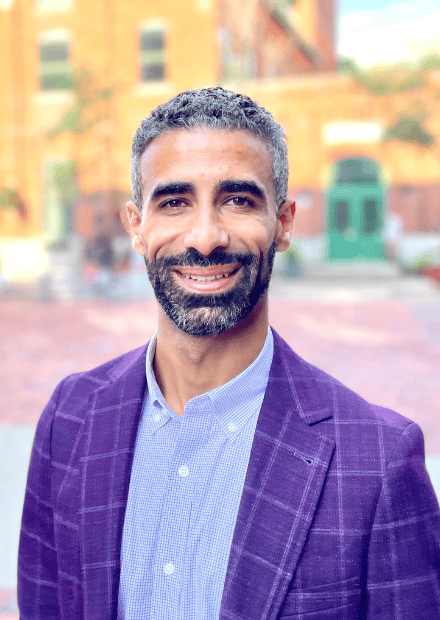
Fund Consultant
Katie McKenna
Katie McKenna is a philanthropic consultant and nonprofit leader with two decades of experience working at the intersection of research, storytelling and social change. She began her career in journalism and documentary filmmaking before co-founding and leading the international climate justice organization The Leap.
As part of the JFF team, Katie has proudly supported the development of the Fund’s strategy, guidelines, independent evaluation process and administration.
Katie holds an MSc Global Politics from the London School of Economics and a graduate Diploma of Philanthropy and Nonprofit Leadership from Carleton University. She is the former Board Chair of the Documentary Organization of Canada, and a graduate of the Rockwood Leadership Program. A bilingual Montrealer, Katie currently lives in the Laurentians with her husband Matt Thompson, and son, Leo.
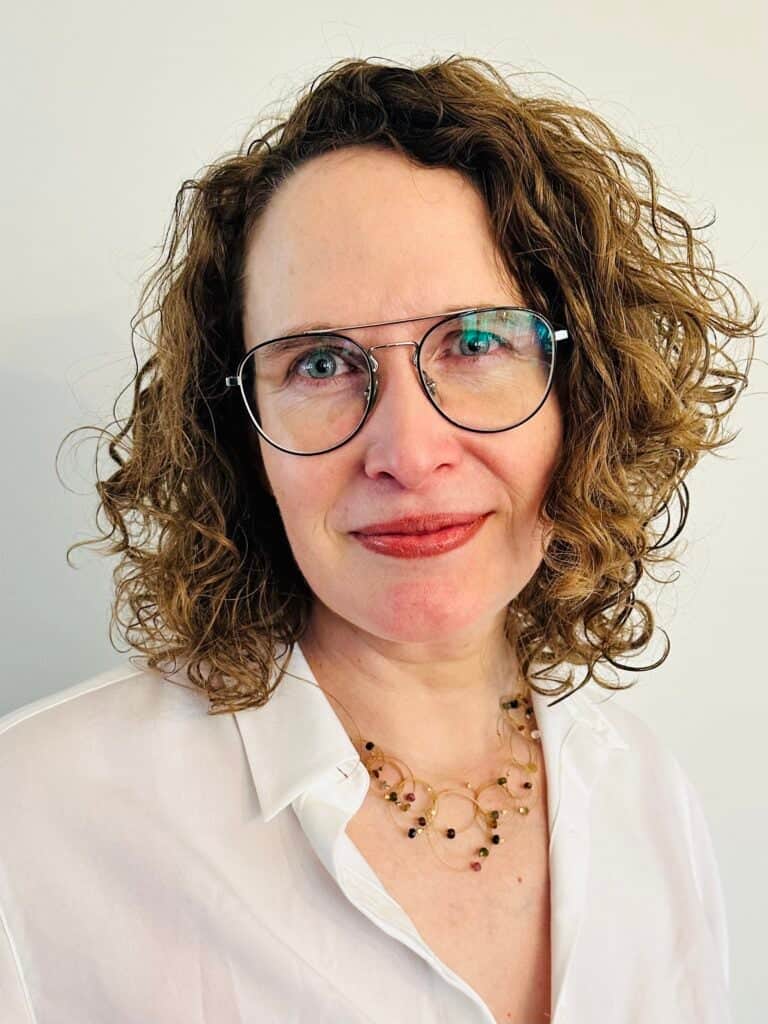
Glossary
In addition to granting, the Fund will offer support in areas like operations, audience engagement, membership models, fundraising and more. Training priorities will be determined by Fund recipients.
Organizations that are trusted sources of information for the community they serve and consistently respond to their needs and interests. These organizations answer questions that matter most to their audiences and have a track record of meaningful engagement with and responsiveness to their communities.
The Fund prioritizes organizations that have been producing journalism for at least a year. This is not a start-up fund to launch new projects. Organizations must be incorporated non-profits, for-profits or Registered Journalism Organizations.
Refers to journalism produced by organizations that are not government outlets — or primarily or majority-owned by a publicly-traded company, advocacy group, religious group, political party, hedge fund or private equity firm.
A journalism organization’s leadership is made up of the individuals who make decisions about its editorial line, operations and governance.
Fact-based reports, features, investigations, profiles, interviews, analyses or commentaries that are written, researched, edited and formatted by and for the organization. Original journalism does not include reprints of mostly-unchanged press releases or wire copy.
The Fund accepts applications from journalism organizations operating on any platform, including digital formats (websites, newsletters, podcasts, social media, etc.), print (newspapers, magazines, etc.), TV, radio or other platforms.
The Fund prioritizes communities that are underrepresented in newsroom leadership and underserved in news coverage. To that end, the Fund prioritizes organizations serving and / or led by:
- Black and other racialized communities;
- Indigenous Peoples (First Nations, Inuit and Métis);
- newcomers, migrant workers, refugees and asylum-seekers;
- low-income communities;
- 2SLGBTQIA+ people;
- people with disabilities; and
- those located in Northern, rural or remote areas.



